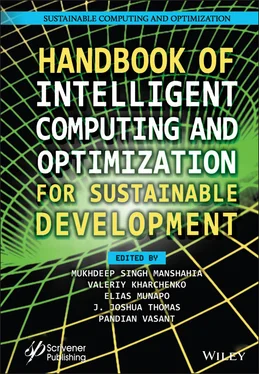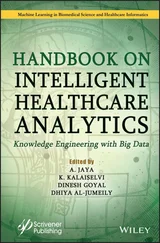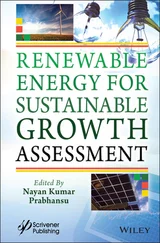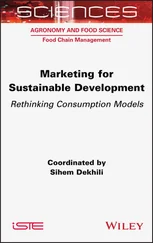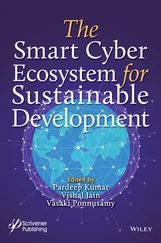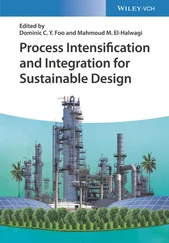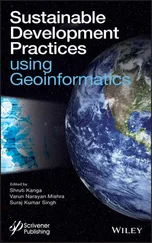Handbook of Intelligent Computing and Optimization for Sustainable Development
Здесь есть возможность читать онлайн «Handbook of Intelligent Computing and Optimization for Sustainable Development» — ознакомительный отрывок электронной книги совершенно бесплатно, а после прочтения отрывка купить полную версию. В некоторых случаях можно слушать аудио, скачать через торрент в формате fb2 и присутствует краткое содержание. Жанр: unrecognised, на английском языке. Описание произведения, (предисловие) а так же отзывы посетителей доступны на портале библиотеки ЛибКат.
- Название:Handbook of Intelligent Computing and Optimization for Sustainable Development
- Автор:
- Жанр:
- Год:неизвестен
- ISBN:нет данных
- Рейтинг книги:5 / 5. Голосов: 1
-
Избранное:Добавить в избранное
- Отзывы:
-
Ваша оценка:
- 100
- 1
- 2
- 3
- 4
- 5
Handbook of Intelligent Computing and Optimization for Sustainable Development: краткое содержание, описание и аннотация
Предлагаем к чтению аннотацию, описание, краткое содержание или предисловие (зависит от того, что написал сам автор книги «Handbook of Intelligent Computing and Optimization for Sustainable Development»). Если вы не нашли необходимую информацию о книге — напишите в комментариях, мы постараемся отыскать её.
This book provides a comprehensive overview of the latest breakthroughs and recent progress in sustainable intelligent computing technologies, applications, and optimization techniques across various industries.
Audience Handbook of Intelligent Computing and Optimization for Sustainable Development
Handbook of Intelligent Computing and Optimization for Sustainable Development — читать онлайн ознакомительный отрывок
Ниже представлен текст книги, разбитый по страницам. Система сохранения места последней прочитанной страницы, позволяет с удобством читать онлайн бесплатно книгу «Handbook of Intelligent Computing and Optimization for Sustainable Development», без необходимости каждый раз заново искать на чём Вы остановились. Поставьте закладку, и сможете в любой момент перейти на страницу, на которой закончили чтение.
Интервал:
Закладка:
This handbook welcomed the proposals and elaborations made by authors from business, management, industries and economic institutions, and from social, environmental and developmental sciences, resulting in first-rate chapters from the research fields of mathematics and statistics, data science and analytics, machine learning, AI and OR, information and computer technologies associated with our fields of application and practice. The chapters herein reflect and offer new results, contributions and products in the current and growing body of insights and state-of-the-art knowledge to address problems affecting the underlying areas of human life, including exchange of information, matter and means of all states of trade and improvements in education, leisure, culture, freedom, empathy and peace. Hopefully this handbook will become an aid to investigators and researchers, designers and scientists, decision-makers and managers, supervisors and executives, medical doctors and patients, producers and consumers, employers and employees, travelers and tourists, hoteliers and agents, directors and financiers, artists and participants, reflectors and servants to humanity and anybody curious about and interested in past, present and future times and lives.
To all the respected authors of this amazingly high number of valuable 41 chapters, I convey my compliments and gratitude for having shared their care and foresight, enthusiasm and dedication, knowledge and assessment, wisdom and vision with our scientific and applied communities, and with humankind. I express my thanks to the publishing house Wiley-Scrivener Publishing, USA, and to the editors, Dr. Mukhdeep Singh Manshahia (Punjabi University, Patiala. Punjab, India), Dr. Valeriy Kharchenko (Federal Scientific Agroengineering Center VIM, Russia), Dr. Elias Munapo (Department of Statistics & Operations Research, NWUMafikeng Campus, South Africa), Dr. J. Joshua Thomas (UOW Malaysia, KDU Penang University College, Malaysia), and Dr. Pandian Vasant (University Technology Petronas, Malaysia), for having provided, maintained and developed this chance for many experts to make public and popular the best parts of their achievements, contributions, works and even lifework. To all of them I express my thankfulness for having spent so much care to guarantee a premium compendium and monograph of a highly academic, practical and impactful socially significant and paradigm-shifting offer to our world, our times and lives.
Now, what is left for me is to wish you all a lot of pleasure, interest and joy when browsing through, inquiring deeply, getting inspired and richly benefitting from this enriching handbook. Yes, very much I hope that its blessings will be great for you and us all, personally and societally, and continue to remain with humankind and all of creation.
Gerhard-Wilhelm WeberPoznan University of Technology, Poznan, Poland Middle East Technical University, Ankara, Turkey
Preface
The editors are immensely gratified to introduce this Handbook of Intelligent Computing and Optimization for Sustainable Development , with the intent of compiling information that advances sustainability as a fundamental factor for intelligent computing and optimization.
Intelligent and smart technologies are at the forefront of technological advances that represent potential transformations in smart living. These technologies and their applications are already rapidly impacting many industries and occupations. With applications in a number of fields such as the Internet of Things (IoT), optimization, renewable energy, manufacturing, agriculture, healthcare and smart cities, research on the developments of artificial intelligence is essential for sustainable development. The recent rise of emerging networking technologies such as 5G networks, social networks, IoT networks, etc., have attracted significant attention from academia as well as industry professionals looking to utilize these technologies for efficient communication purposes. Future citizens of the world will face increasing sustainability issues and need to be better prepared for energy transformation and sustainable future economic development in a smart world. Advances in artificial intelligence (AI) paradigms and smart informatics systems domains highlight the need for systems that aim to improve the quality and security of human life; therefore, this book discusses applications of artificial intelligence in sustainable development.
Recently, optimization has also received enormous attention along with the rapidly increasing use of communication technology and development of user-friendly software and artificial intelligence. In almost all human activities, there is a desire to deliver the highest possible results with the least amount of effort. Moreover, optimization is a very well-known area with a vast number of applications, from route finding problems to medical treatment, construction, finance, accounting, engineering and maintenance schedules in plants. As far as optimization of real-world problems is concerned, understanding the nature of the problem and grouping it in a proper class may help the designer employ proper techniques which can solve the problem efficiently. Many intelligent optimization techniques can find optimal solutions without the use of objective function and are less prone to local optima.
This book provides the reader with an integrated understanding of the importance that intelligent computing has in the sustainable development of current societies. It discusses the emerging research exploring the theoretical and practical aspects of successfully implementing new and innovative intelligent techniques in a variety of sectors, including the IoT, manufacturing, optimization and healthcare. In general, the book is intended as a presentation of a wide range of publicly advanced achievements in the field of intelligent computing and optimization, which will be useful for a wide range of readers and will doubtless have a positive impact on a solution to the problem of sustainable development.
This book is a pivotal reference source for IT specialists, industry professionals, managers, executives, researchers, scientists, and engineers seeking current research on emerging perspectives in the field of artificial intelligence to improve their products or research. Therefore, it will be a great resource for both Master’s and research students of computing sciences, engineering, environmental sciences, medical sciences, mathematics, statistics, economics and agricultural sciences. Moreover, industry experts from telecommunications, the energy sector, manufacturing industry, health sector, and finance and planning sectors can use this book as a reference resource.
Based on double-blind review processes, the 41 chapters were accepted for publication according to their suitability for the five parts of the book. A brief description of each chapter is given below.
Part I: Intelligent Computing and Applications
Chapter 1proposes a mental workload prediction model using a neural network and the Bernoulli Boltzmann machine. For measuring mental workload, eye movement metrics were considered. The eye metrics were computed from raw eye movement data, which were recorded using an eye tracking device while solving coding problems. The authors found that the Bernoulli Boltzmann machine provides better accuracy in predicting mental workload from eye metrics.
Chapter 2discusses the development of an artificial neural network (ANN) using short DNA strands, i.e., oligonucleotides. The short sequences of DNA molecules can be used to code input and output signals and to build the basic architecture of the neuron. The authors also illustrate the design methodology of DNA logic gates and DNA logic circuits. Because of a few drawbacks, viz. immense energy consumption, vast memory requirement and heat dissipation, the traditional computation approaches the limitations of its processing power and design strategy. The aim of the authors is a paradigm shift in the computational world; from silicon to carbon. The design strategies discussed in this chapter are essential for effective development of a practical DNA computer.
Читать дальшеИнтервал:
Закладка:
Похожие книги на «Handbook of Intelligent Computing and Optimization for Sustainable Development»
Представляем Вашему вниманию похожие книги на «Handbook of Intelligent Computing and Optimization for Sustainable Development» списком для выбора. Мы отобрали схожую по названию и смыслу литературу в надежде предоставить читателям больше вариантов отыскать новые, интересные, ещё непрочитанные произведения.
Обсуждение, отзывы о книге «Handbook of Intelligent Computing and Optimization for Sustainable Development» и просто собственные мнения читателей. Оставьте ваши комментарии, напишите, что Вы думаете о произведении, его смысле или главных героях. Укажите что конкретно понравилось, а что нет, и почему Вы так считаете.
